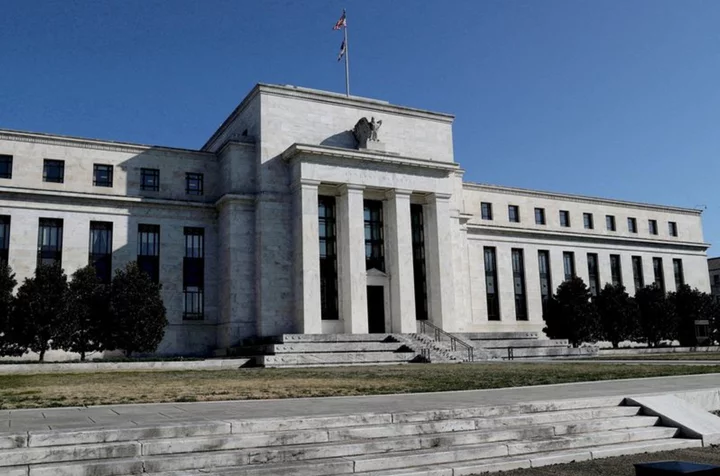The dog days of summer are boom times for divorce filings.
Divorce filings tend to peak every March and August, according to lawyers and research studies. So, right now, many people are wrestling with the emotional strains and financial challenges of divorce.
If you think budgeting and saving are hard in this economy, imagine splitting up in it.
The 2023 economy has been marked by financial volatility, as fluctuations in the stock market, cooling home prices and the erosion of purchasing power have left many couples more uncertain than usual on how to divide assets.
The current climate calls for strategy, flexibility, and compassion, according to real estate brokers, accountants and divorce attorneys. You can't quite inflation-proof your divorce, they noted, but there are steps to take to blunt the economy's impact on it.
Selling a house
For many Americans, their entire fortune is tied up in where they live. But the family home has been falling in value, at least in some regions. What if you must sell anyway? Build provisions into your separation agreement that establish when and to what degree the home's price will be marked down if it isn't selling, Jaime Davis, a veteran divorce attorney in Raleigh, North Carolina, told CNN. The last thing you want is for the market to be softening and you have to reach your ex before you can react.
It should be in writing that spouses will cooperate with showings and maintain the home in good condition. Experts stressed that a speedy sale is preferable as divorce proceedings tend to get more contentious as they drag on.
Refinancing your mortgage
It's rarely been as inexpensive to buy out your spouse and to keep the family home. But a spouse keeping a home often requires getting their partner's name off the mortgage.
According to credit rating agency Experian, removing a cosigner from a mortgage "almost always requires paying off the loan in full or refinancing by getting a new loan in your own name." Some mortgage loans are assumable without refinancing, like Veterans Affairs loans, but not most.
If you refinance, you'll also have to qualify for a new loan based on one income. Rising interest rates have made that very pricey, according to Scott Trout, divorce attorney and CEO of Cordell & Cordell. A couple that paid 2.5% in 2019 is looking at refinancing now at 6.5% to 7%, he said.
The fastest way to nudge a mortgage interest rate down is to raise your credit score in advance of applying. Pay down, or pay off on time, your credit cards, as banks report to credit agencies swiftly.
Appraising what's inside
Here's a cautionary tale of the super-rich: Oil magnate Sid Bass divorced his wife Anne in 1988 after 23 years of marriage. Anne Bass was awarded a sum of money, the house and its contents.Those contents happen to include Edgar Degas and Mark Rothko paintings. Last year, an auction of the art totaled $363 million.
There is probably not a Degas in your attic. But other collectibles may hold value. "People don't know what they have, they have no idea," said Victor Weiner, former head of the Appraisers Association of America. "Check the walls, check the attic, check everything."
Valuing stocks, bonds and retirement assets
There's a huge amount of emotion involved in splitting up assets that were acquired during a marriage. The seesaw economy hasn't helped. Your stocks and bonds may have been worth much more just a couple of years ago. And, on the flip side, it may be heartbreaking to discover that appreciation on assets you owned long before your marriage or your retirement fund might be treated as community property.
But "it's far better to divorce when the bulk of assets are at their lowest; sell now and keep [what you can] when its going higher," said Trout. "A trap that clients get into is valuing a $100,000 401k at $100,000" when splitting funds, and not taking into account future appreciation or tax benefits," he said.
Experts say that trying to pick the best time to sell, or wait out a division of assets until after a recession, will result in a long wait and lots of uncertainty.
Predicting income in the gig economy
Courts typically look back at two, or sometimes three, years of income to determine spousal support or child support payments. But the pandemic shutdown threw that math way off.
So has the rise of irregular income through independent-contractor work and so-called "side hustles." Many of these jobs do not have traditional benefits such as health insurance, paid days off and have little job security or severance.
So it's important to test out various financial scenarios. Make plans based on a range of likely incomes, allowing for seasonal shifts. Also, divorce attorneys stress, expect the strains and time-consuming duties of divorce to, at least temporarily, trim gig income.
Divvying up debt and student loans
Debt incurred prior to a marriage is owned separately and then jointly afterward, in most cases. Credit card debt is shared, with some caveats, if the card is jointly owned. But in the US, more than 40 million borrowers have federal student loans. And this fall interest payments that were frozen during Covid resume. That may become more of an issue for some spouses than they might expect.
If one spouse takes out a loan to go to school, the debt can be considered joint. The decision is based on the state, length of the marriage and whether both spouses sacrificed for, or prospered from, the education paid for by the loan.
In most cases, courts assign the responsibility for student loan payments to the spouse who incurred them. But if the divorce is contested, the judge has some discretion to determine who is left with the debt.
Figuring for inflation
Inflation's largest impact on divorce may be in postponing it.
"I have clients who have put off divorce because of the economy," said Manhattan accountant Marc Albaum. "One's a financier who took a break from Wall Street during Covid while his wife worked as a nurse; now he's found it difficult to get back in and says, 'I can't get divorced because of the high costs of housing and medical insurance."
Inflation also cuts into the buying power of spousal and child support; divorce, too, can cost more. So, make sure to add a cost-of-living provision to your settlement. It ties what you pay or receive to the Consumer Price Index.
Some states already include a cost-of-living provision tied to CPI but make sure it's the CPI specific to your city or region, not just your state. Consider whether to negotiate a "floor" and a "cap" into your settlement.
Budgeting for a layoff, and the future
Unemployment overall is running at a historically low 3.6%, but in certain industries there have been mass layoffs.
So experts say do suggest doing a little fortune-telling. If you're expecting to lose your job, or to see your income limited, consider a delay to your divorce, if that's feasible. Existing awards are based on employment and current income. Of course, you can appeal if circumstances change. Depending on the state, a 15% change in income, retirement or job loss can trigger a second look at the settlement. But the process can be expensive and time-consuming.
In some states, Covid built up the backlog of contested divorces — ones that head to court — from 6-8 months to two years. That's a long time to be in limbo.









